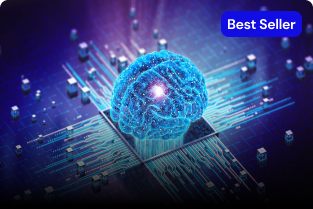Artificial Intelligence (AI) is no longer just a futuristic concept—it’s an essential technology shaping industries from healthcare to finance, education to entertainment. If you’re curious about how to create AI systems, you may wonder: what exactly do I need to develop artificial intelligence?
Developing AI isn’t about just writing code; it requires a combination of knowledge, tools, resources, and skills. Let’s break it down step by step.
1. A Strong Foundation in Programming
AI begins with code. Proficiency in programming languages is the first requirement. The most common languages used for AI development are:
-
Python – Popular for its simplicity and rich AI/ML libraries (TensorFlow, PyTorch, Scikit-learn).
-
R – Excellent for statistical modeling and data visualization.
-
Java, C++, Julia – Useful in performance-critical AI applications.
A good understanding of data structures and algorithms also plays a crucial role in building efficient AI systems.
2. Mathematics and Statistics Knowledge
AI heavily relies on mathematical concepts. You’ll need:
-
Linear Algebra – For neural networks and vectorized data processing.
-
Probability and Statistics – For data interpretation, decision-making, and Bayesian models.
-
Calculus – For optimization and backpropagation in deep learning.
Without math, AI is just guesswork.
3. Data – The Fuel of AI
AI models learn from data. You’ll need large, high-quality datasets to train your systems. Sources of data include:
-
Open datasets (Kaggle, UCI Machine Learning Repository).
-
Company-provided proprietary data.
-
Self-collected data through sensors, APIs, or web scraping.
Remember: the better the data, the better the AI.
4. Powerful Tools and Frameworks
Modern AI development is accelerated by frameworks and libraries that simplify complex processes:
-
TensorFlow & PyTorch – For deep learning.
-
Keras – A high-level library for quick prototyping.
-
OpenCV – For computer vision applications.
-
NLTK & SpaCy – For natural language processing (NLP).
These tools provide pre-built functionalities, saving you time and effort.
5. Computing Resources
AI, especially deep learning, demands strong computational power. You’ll need:
-
GPUs (Graphics Processing Units) – For handling large-scale training tasks.
-
Cloud Platforms (Google Cloud AI, AWS, Microsoft Azure) – Provide scalable AI development environments.
-
Local Machines with enough RAM and storage for smaller projects.
6. Domain Knowledge
Building AI isn’t just about technology; it’s about solving real-world problems. For instance:
-
In healthcare AI, you need medical knowledge.
-
In finance AI, you need to understand markets and regulations.
Domain knowledge ensures your AI is practical and impactful.
7. Problem-Solving and Creativity
AI is about innovation. You need critical thinking to design solutions, creativity to develop unique models, and analytical skills to evaluate performance.
8. Collaboration and Continuous Learning
AI development often involves working with teams of data scientists, engineers, and subject experts. Also, since AI is rapidly evolving, you must keep learning new methods, frameworks, and ethical practices.
Conclusion
Developing artificial intelligence requires much more than just coding skills. You need programming expertise, math knowledge, quality data, frameworks, computing power, and real-world problem understanding. Combine these with creativity and continuous learning, and you’re well on your way to building impactful AI systems.

